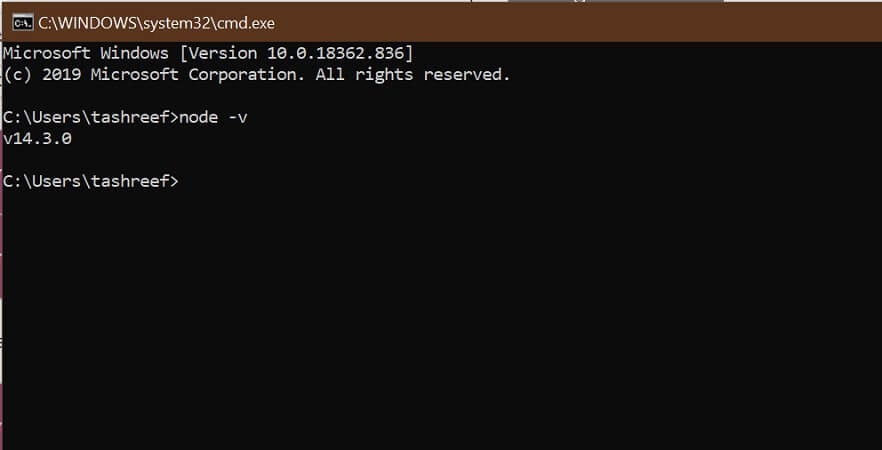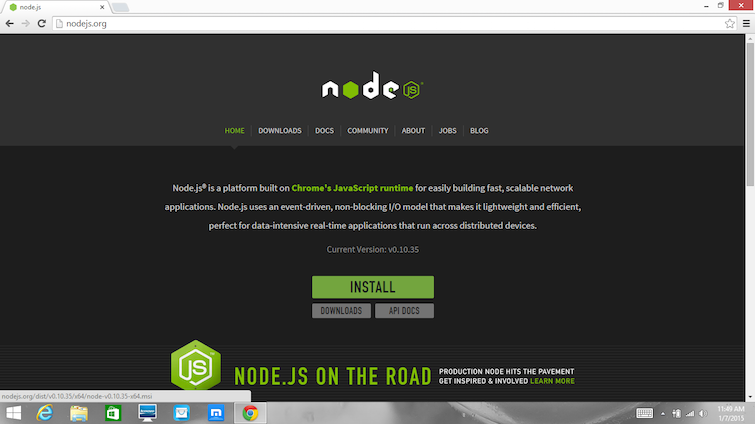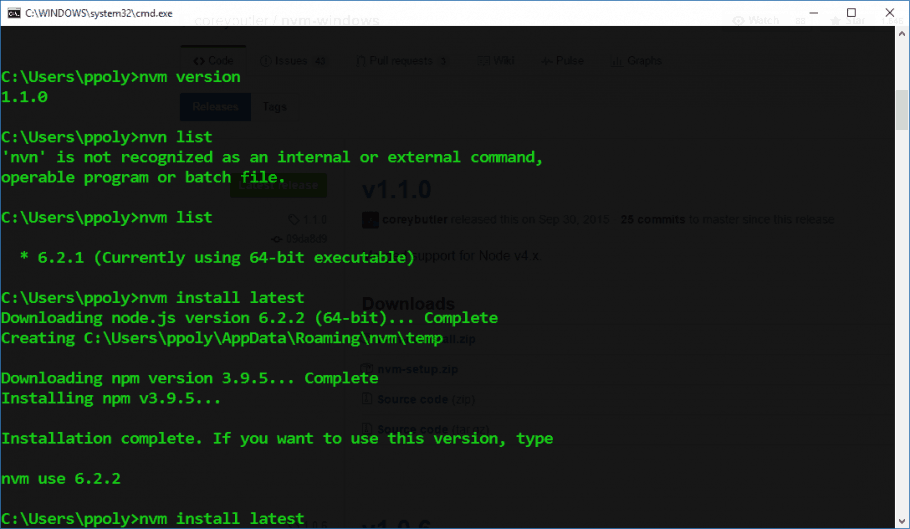

In our upcoming tutorial, we will discuss how to run multiple versions of Node.JS on single machine using NVM. With this we end our tutorial on how to install NodeJS on Linux machines.

To check the version number of Node.JS, run the following command, This will install the latest version of Node.JS on your system. & install it using the following command, Next compile the source code with the following commands, Use the following process to install latest version of Node.Js i.e. We can also install Node.JS on both Ubuntu & CentOS by building it from source. If you’re interested in secure, reliable, and extensible Node.js, you should really take a look at N|Solid - we’re eagerly awaiting October when Node.js 8 becomes LTS and we begin shipping N|Solid with Node.js 8.To use the official repository to install Node.JS, execute the following command based on the version needed, If you want to see if your Enterprise Linux distro and version is supported, you can find the full list of distros and *supported *versions for each distro on the GitHub repo. To install Node.js 8 on Enterprise Linux distros like RHEL, CentOS, and Fedora, you need to run the bash script for and you’ll have the Node.js 8 RPM repository - once you’ve done that, you’ll be ready to go.

Install Node.js 8 on Enterprise Linux Distributions If you’d like a full deep-dive into installing Node.js on Ubuntu or Debian, I wrote articles on installing Node.js on Ubuntu and installing Node.js on Debian Linux a while back that give a detailed explanation of the process. If you want to see if your distro is supported, you can find the full list of distros and *supported *versions on the GitHub repo. To install Node.js 8 on Ubuntu and Debian-based Linux distros, you’ll need to run the bash script for and you’ll have the up-to-date APT repository ready to go. Want to get the latest and greatest with Node.js 8 on Linux? Let’s get you up and running: Install Node.js 8 on Ubuntu or Debian Linux With the release of Node.js 8 yesterday, we’ve gone ahead and built the Node.js 8 binaries and made them readily available if you’re using Node.js on a Debian- or Enterprise Linux-based distro. These aren’t repositories like most Node.js developers think of them - git repositories - but rather repositories in the sense of installing Node.js via the given Linux OS’s built-in package manager - like apt and yum. At NodeSource, we maintain the consistently-updated Node.js repositories for Linux distributions.


 0 kommentar(er)
0 kommentar(er)
